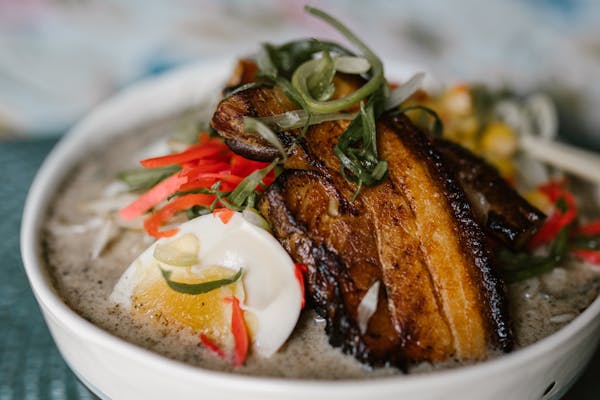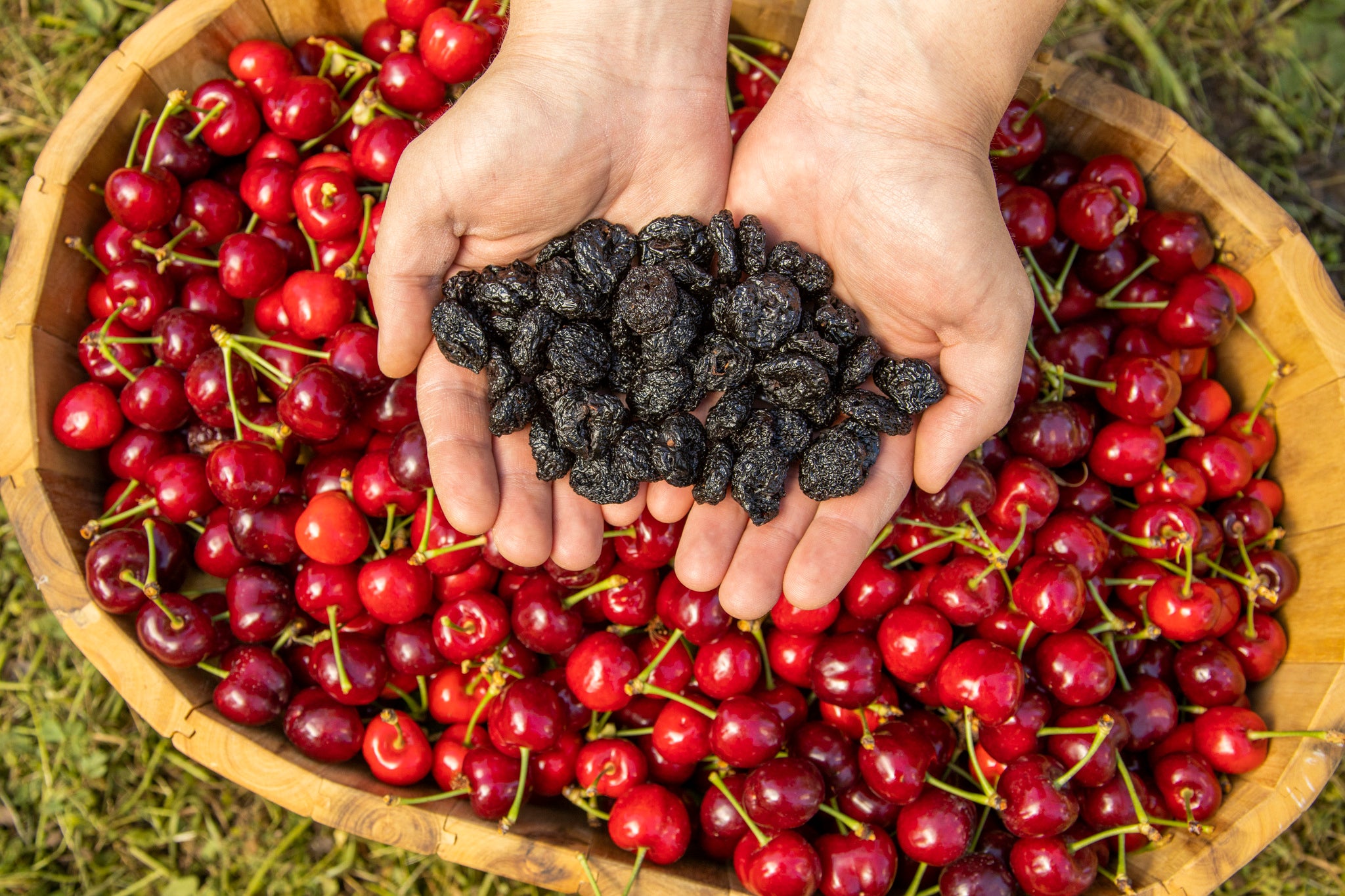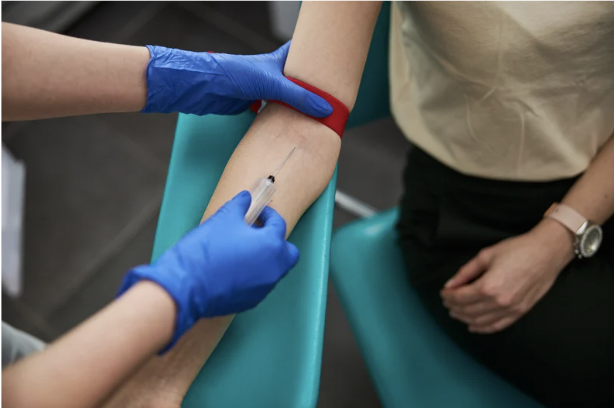How To Approach Eating Disorders During The Coronavirus Outbreak, According To Experts
The news around the COVID-19 outbreak is constantly changing, but information about food safety and how to keep yourself healthy is crucial right now. Here is a comprehensive list on the foods you should be stocking up on during this period of social distancing, as well as information about your local grocery stores’ changing hours, an explanation of “no-contact delivery,” and a guide on how to help your community and its businesses throughout closures.
Images of empty grocery store shelves—whether you’ve seen them on Instagram or in person—and the constant barrage of other COVID-19-related news are universally upsetting. There’s no way around that. But the increased focus on what you should and shouldn’t be eating and how you should and shouldn’t be stockpiling is particularly traumatizing for the millions of Americans who struggle with disordered eating.
So we spoke with three experts—Dr. Gregory Jantz, Ph.D, founder of The Center • A Place of HOPE; Carolina Guizar, MS, RDN, CDN, and founder of Eathority; and Alissa Rumsey, MS, RD, and the owner of Alissa Rumsey Nutrition and Wellness—about the impact the coronavirus crisis is having on the eating disorder population and how you can help them during this trying time.
Why do people find food and alcohol to be helpful stress-management tools?
“Food and alcohol provide two things,” Dr. Jantz explains: “a change of mood and temporary emotional coverage.” If a person is already panicked and desperate, they’re going to turn to things to help them quickly feel different.
At an even more basic level, “eating is emotional,” Alissa Rumsey says. “Having an emotional connection with food is part of a healthy relationship with food. Cooking, baking, and eating are all ways in which we connect with others and care for ourselves and for the people we love, so it makes sense that people would use food to cope with emotions.”
“Food is reliable,” Carolina Guizar adds. “It can encourage mindfulness by bringing our attention to taste, texture, and aroma”—all things people crave in times of uncertainty.
What about this period in time could cause extra food-related stress?
Guizar points to panic-buying (and the resulting empty grocery store shelves) as a catalyst for stress: “Food scarcity can bring up feelings of deprivation, and in the face of this, your body and mind become highly focused on food. This can lead to food preoccupation, frequent snacking, and eating past fullness.” None of this is innately bad or wrong, she stresses. “It is actually a sign that your body is very much attuned to its survival instincts.”
How can an eating disorder exacerbate that stress?
“In a high-stress situation and uncertain time, people with disordered eating may notice that their anxiety is increasing and that their eating disorder voice is growing stronger,” Rumsey says. It makes sense—these behaviors often come from a place of wanting to have control: “When so much is out of our control, it can be tempting to start restricting again.”
What about the act of self-isolating?
Per Guizar, “Eating disorders thrive on isolation, and if a person starts to feel alone, they may turn to their eating disorder behaviors because it’s familiar or they lack other coping mechanisms.”
Plus, Jantz notes, a lot of eating disorders involve an “ongoing challenge with moving away from food, like in the case of anorexia, or, in the case of bulimia and binge-eating, people move toward food.” If [you are home and] isolated, the whole idea of binging on food, on the news, on Netflix, on everything, naturally becomes more prevalent.
If you find yourself at this point in time relying on disordered eating behaviors, it “does not mean [you] are failing at recovery and it does not negate progress [you] have made,” Rumsey emphasizes.
There has been an influx of memes about binge-eating and stockpiling food—attempts at making light of a terrifying situation. How can people make social media—a crucial source of interaction right now—a less triggering place?
“Set boundaries around how much time you spend online and what outlets you read [and] watch,” Rumsey suggests. One way to do this is to identify the posts (and the people creating them) that are triggering for you—then avoid them.
And if avoiding that content (or staying offline, even) seems impossible right now, Guizar encourages people to reach out for help. “What is missing from these memes is that turning to food or alcohol are very normal and understandable responses to stress, anxiety, and scarcity. If anything, I would hope that the memes normalize these coping mechanisms and show how universal they are,” she says.
Meanwhile, Jantz doubles down on the fact that we are all going to be more anxious right now (and likely for a while longer) no matter what our situations are. He suggests you make affirmation cards—actual three-by-five index cards with mantras and messages—and that you take them with you wherever you go. IRL memes, if you will.
How can people manage the non-digital triggers of being inside and surrounded by food all day?
Rumsey acknowledges how scary it may feel to stock up on food “if you normally don’t keep a lot of food around. But remember that “being around more food will help to minimize feelings of food scarcity and insecurity.” That said, if you’re having more disordered thoughts, try to “meet those thoughts with curiosity and compassion.” She continues: “Thoughts are just thoughts, and just because you are having a thought doesn’t mean it’s true and that you have to act on it. Some thoughts are helpful and some are not. Make sure to lean on your treatment team, therapist, or dietitian.”
Know that what is best for you is not what is best for everyone else, Guizar says: “If you find stockpiling food triggering, consider keeping small amounts of food in the home and going out every few days to re-stock. If not having enough food around the house feels problematic, can you stock up for a week or two at a time? And just as a reminder, the healthfulness of the food is secondary to adequacy. Having enough food is
what is most important, fueling your body with sufficient energy is what matters most. This may mean someone is straying from their usual intake and that is OK.”
Jantz puts it bluntly: “We need to get outside. At a minimum of twice a day.” He also wants you to continue to hydrate regularly—the importance of that cannot be understated, in his opinion.
How can people who are quarantined with loved ones with disordered eating habits help them?
The three experts agree: Check in on them. Listen to them without judgement. “Reassure them they are loved, worthy, and cared for despite their food and body struggles,” Guizar says. “They matter and are not defined by their eating disorder.“
If you or someone you know is struggling with an eating disorder, call 1-(800)-931-2237 or visit NEDA.





